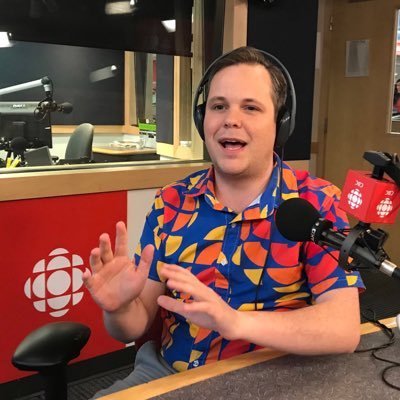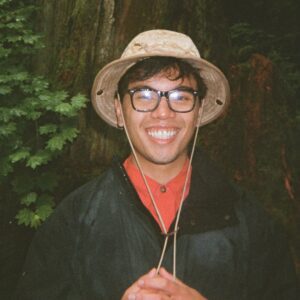
Justin McElroy – Media & Communications
“You can make your dream job happen as well, but remember that it’s probably going to be really hard at first.”
What inspired you to pursue a career in media and communications?
The money, stability and positive feedback.
No honestly, the story is fairly pedestrian: I was doing an undergraduate degree in Political Science at UBC, and found it pretty boring — but I was writing a semi-regular sports column for the student newspaper, The Ubyssey, and that was fun. Then I entered the newsroom for the first time, saw the camaraderie of the people, the shared goals, the excited discussions about journalism and ethics and pretty much everything under the sun, and I was hooked.
It seemed way more interesting than my classes, way more likely to give me the chance to have a career (remember, this was early 2008, right before newspapers fell off a cliff with advertising dollars), and the idea of telling interesting and unique stories to people sounded cool. And still does.
How has your role changed throughout the pandemic?
When the pandemic began I was our Municipal Affairs Reporter, covering city halls across Metro Vancouver, but then all the city halls shut down, and I was sent home very early due to a possible exposure to the virus.
So I needed something to do, and I pitched the idea of creating some daily charts that could track the quantitative information the government was giving out in press releases but not providing in any open data or accessible form.
Providing those daily numbers — with context and charts and the occasional bit of humour — was my main job for 18 months, but I also provided reporting and analysis on the pandemic as the situation ebbed and flowed, along with trying to keep up with reporting on city politics when I could.
That was a lot of effort, and a few weeks back I made the decision to stop doing the charts and commentary on a daily basis for a whole host of reasons. For most of the pandemic, I’d say my job was 80% virus-based, 20% municipal politics based, and now it’s shifted the opposite way.
As someone who openly shares their experiences with Autism, what advice can you give for other aspiring professionals on the spectrum?
These questions always make me somewhat nervous because everyone on the autism spectrum is a little bit different, with their own strengths and weaknesses that manifest themselves in different ways depending on who they are and what industry they are in.
So I can only really speak for myself, but I’ve found accentuating my strengths and working really hard to find workarounds for my weaknesses has been quite important. Being self-deprecating about the things that I’m not good at has also been helpful, along with asking people to be more explicit if I don’t understand something at first.
But also, and I know it sounds trite, but being myself (enthusiastic, blunt, sometimes grumbly, always passionate about detailed things) has always worked way better for me in any job than being quiet and trying to “fit in” because of not trusting myself.
What do you enjoy most about your very active Twitter following?
How calm and reasonable everyone is.
Honestly, I enjoyed Twitter (@j_mcelroy) more when I had less followers and what I *thought* about something mattered less to people, because the platform inherently incentivizes a lot of things I don’t think are particularly helpful.
But! I’m still there! And I do enjoy the strangers I get to meet, the things I learn about different municipalities and B.C.’s different cultures and peoples, and the passionate but meaningless debates one can have on why Dude Chilling Park is overrated and what the best roadside attraction in the province is.
Your radio column and newsletter with CBC are called “Metro Matters”. Is the assumption there that Metro Vancouver politics should matter more to people?
Turnout in local elections is typically between 20 and 40 percent of eligible voters. Mayors and councillors are the people in charge of our land, our parks, our police, our festivals, what things can be built, what businesses get approved, and all the other on the ground stuff that help determine why we like where we live or what we do.
And yet, it gets much less attention than federal or provincial politics! That’s true in most places in Canada and the United States, but it still is something that I hope to be able to influence in a tiny way with having the job that I do. If my reporting (and the way I do my reporting) makes you more interested in local politics, then I’m a happy camper.
What is one thing you wish others knew about your career?
I didn’t go to journalism school, didn’t have any family connections to media, and my first non-internship after university was answering the phone lines and working shifts that began at 1 in the morning at a different TV station in town.
Which is to say: you can make your dream job happen as well, but remember that it’s probably going to be really hard at first.
In your opinion, what is the best craft beer in Vancouver?
I mean it depends on the season and the mood, but give me a Raspberry Changeling from Brassneck, and put me in the semi-secluded booth in the back of their tasting room, and that’s pretty much nirvana for me.
Categories:
Ask the Expert
Tags:
Ask the Expert, communications, Media



